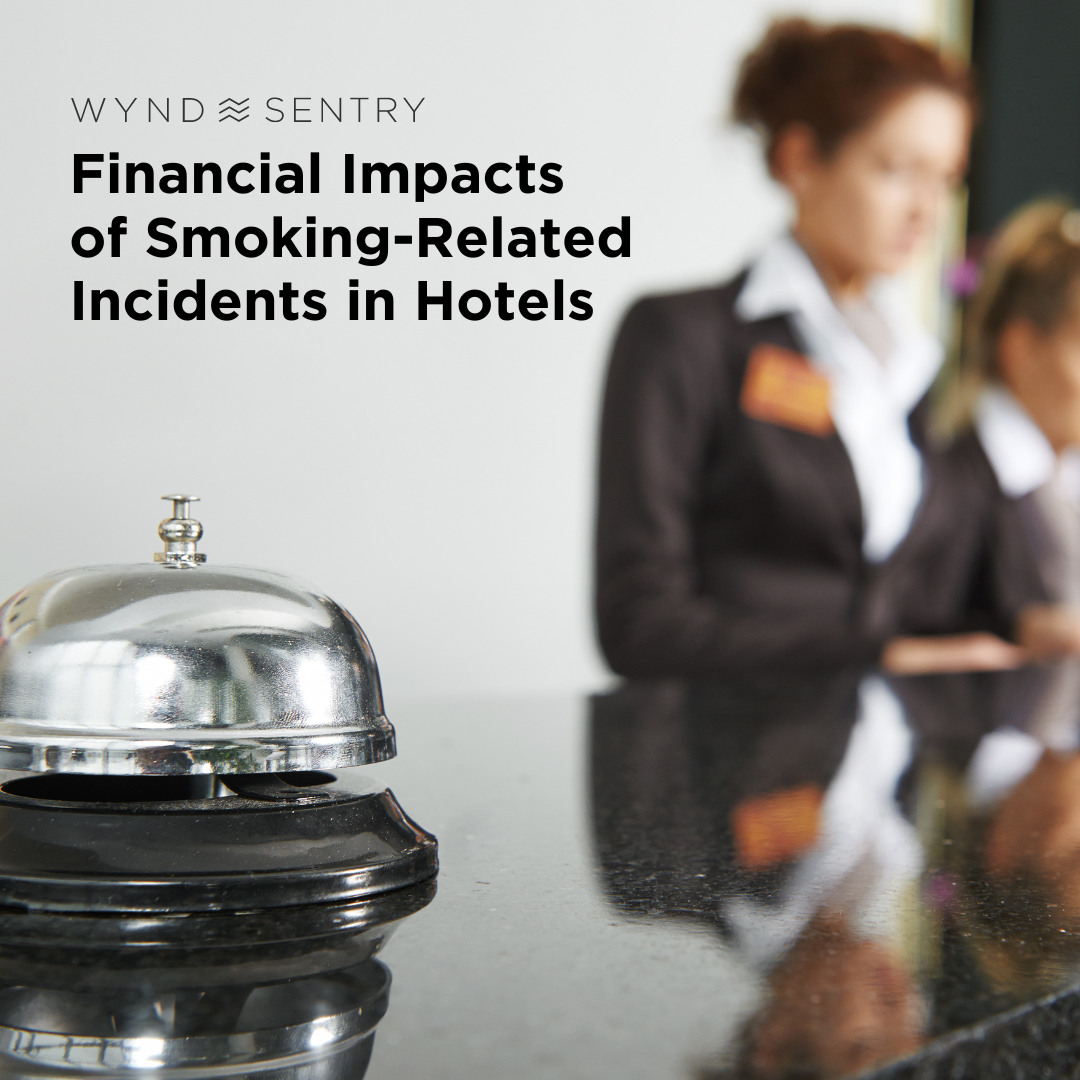Smoking-related incidents in hotels aren't just about the smell or inconvenience—they can significantly impact the bottom line. From lost revenue to extended cleaning costs, these incidents pose various financial challenges for hotel owners and operators. Let's delve into the potential financial impacts of smoking-related incidents and explore strategies to mitigate them effectively.
To overcome these issues, it's crucial to leverage the right technology. Hotels have an added need for cigarette smoke detectors, which can provide early detection and help prevent serious damage. By investing in advanced solutions like cigarette smoke detectors, hotels can proactively address smoking incidents, minimize financial losses, and ensure a pleasant experience for all guests.
Potential Credit Card Chargebacks:
One of the immediate concerns following a smoking incident in a hotel is the potential for credit card chargebacks. When guests dispute charges related to cleaning fees or damages caused by smoking, hotels face the risk of losing revenue and incurring additional administrative costs. Without proper documentation or evidence, hotels may struggle to defend their policies and charges.
|
To bolster the chances of winning chargeback cases, hotels can leverage technology solutions like Sentry. This platform generates detailed reports, known as SmokeSignal Verified Reports, fortified with strong evidence to substantiate the hotel's position. By providing irrefutable proof of smoking incidents, hotels can increase their success rates in chargeback disputes, minimizing financial losses. |
Extended Cleaning Costs:
Cleaning a room affected by smoking requires more than just a quick spritz of air freshener. Smoke residue permeates various surfaces, necessitating thorough cleaning to eliminate the odor and restore the room to its original condition. As a result, housekeeping staff may need to spend additional time scrubbing surfaces, shampooing carpets, and deodorizing the room—a process that incurs higher labor costs.
Moreover, the need to keep smoking-affected rooms out of inventory for longer periods disrupts housekeeping schedules and leads to inefficiencies in room turnover. These delays in making rooms available for occupancy can further exacerbate revenue losses, as rooms remain unoccupied for extended periods.
|
The expenses incurred from smoking-related damage, including the replacement and accelerated depreciation of both soft and hard goods in a guest room, are 2.6 times higher than the revenue collected from cleaning and damage-related fees. Unauthorized smoking annually costs hoteliers $5.4 billion. |
Unavailability of Rooms:
When rooms are marked as unavailable due to smoking incidents, it directly impacts occupancy rates and revenue generation. During peak seasons or events, the unavailability of rooms can result in missed revenue opportunities as the hotel may be unable to accommodate all potential guests. Additionally, the negative guest experience associated with encountering a smoke-affected room can lead to dissatisfaction and damage to the hotel's reputation.
Other Costs Related to Smoke:
Apart from cleaning and revenue losses, smoking-related incidents can incur additional costs for hotels. These may include fines or penalties for non-compliance with health and safety regulations regarding indoor smoking, legal fees associated with chargeback disputes or regulatory violations, and reputation management expenses to address negative reviews or publicity.
These costs gloss over the deeper and long term impacts of dealing with smoking impacted rooms. Issues could include structural damages, furniture deterioration, fire risks, and many other factors that can be affected over long periods of time. To learn more, head over to our article on damages caused by smoking in hotels here.
Mitigating Financial Impacts:
To minimize the financial impacts of smoking-related incidents, hotels can adopt proactive measures and strategies:
- Clear Communication: Ensure guests are aware of the hotel's smoking policy through booking platforms, signage, and check-in procedures.
- Strict Enforcement: Enforce non-smoking policies rigorously and impose penalties for violations to deter guests from smoking in rooms.
- Invest in Technology: Utilize advanced solutions like WYND Sentry to proactively address smoking incidents and support chargeback disputes effectively. WYND Sentry empowers your staff with real-time alerts and detailed monitoring to prevent damage. Additionally, it provides comprehensive reports and evidence, ensuring you're equipped to contest chargebacks related to smoking incidents.
- Enhanced Cleaning Protocols: Develop comprehensive cleaning protocols tailored to address smoke odors and residue efficiently.
- Compliance with Regulations: Ensure compliance with health and safety regulations regarding indoor smoking to avoid fines or penalties.
- Reputation Management: Monitor online reviews and address any negative feedback promptly to maintain a positive reputation.
Smoking-related incidents in hotels carry significant financial implications, including lost revenue, extended cleaning costs, chargeback disputes, and regulatory fines. By implementing proactive measures and leveraging technology solutions, hotels can mitigate these risks, uphold their reputation, and provide a clean and comfortable environment for guests while safeguarding their financial interests.
For more information on WYND Sentry and how it can benefit your hotel, visit WYND Sentry - Hotel or connect with our team to Book a Demo.

